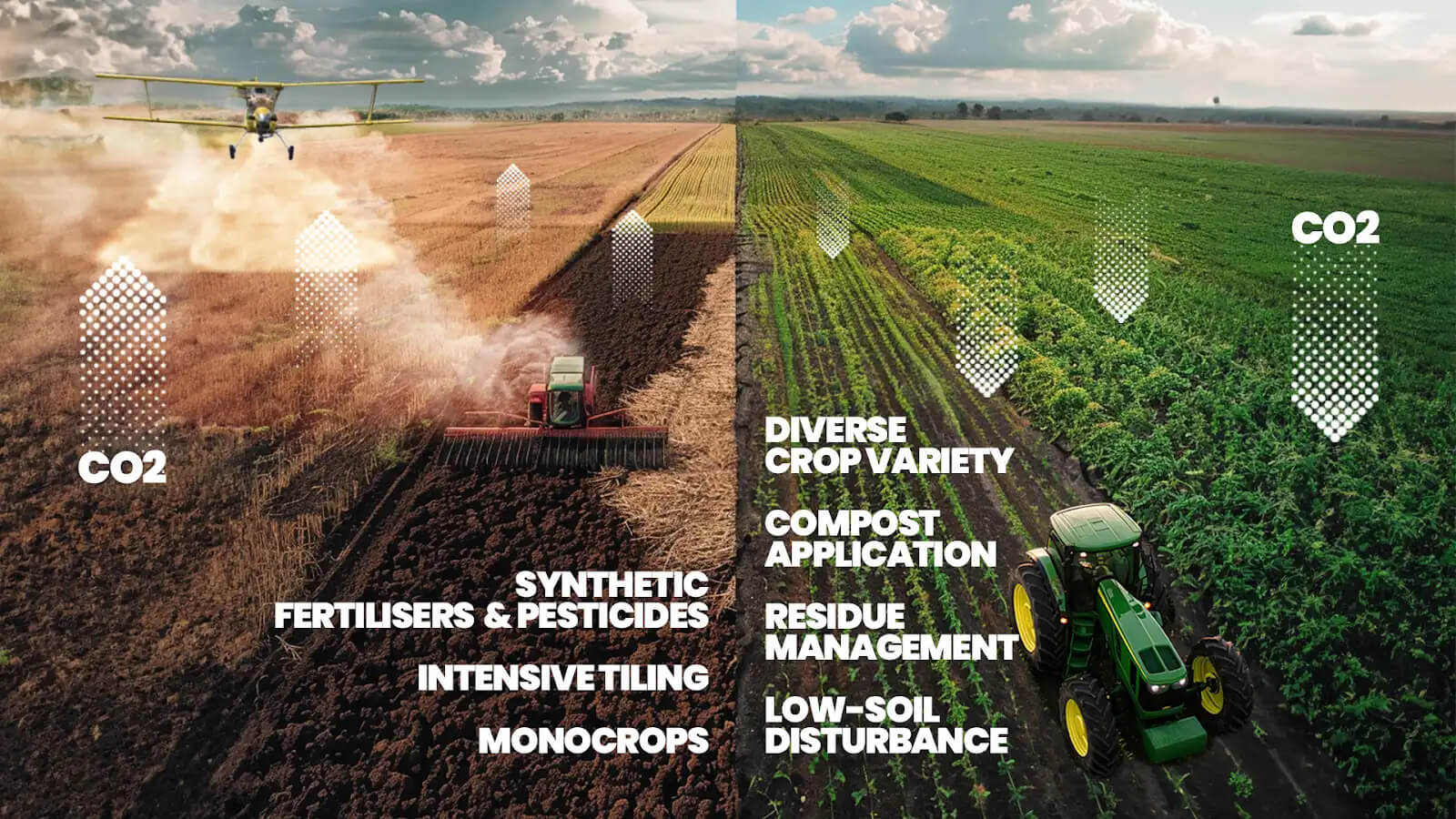Leverage agriculture in your
path to net zero
Incorporate soil carbon removals into your climate goals
Incorporating soil carbon removals into your climate goals allows you to offset hard-to-abate emissions while supporting the transition to regenerative agriculture.
HeavyFinance’s approach to regenerative agriculture provides access to high-quality carbon removals
Additional
Dynamic baselines guarantee that only the carbon genuinely sequestered beyond standard business-as-usual scenarios is credited towards carbon removal efforts
Permanent
Financial incentives, coupled with risk identification and mitigation mechanisms, alongside robust local governance structures, serve to minimise reversals, thereby ensuring the enduring sequestration of carbon
High-integrity
Dynamic baselines guarantee that only the Extensive on-farm soil sampling, combined with first-class science-based methodologies, offers conservative and factual carbon accounting
Monitoring
Combining field visits with satellite-enabled sensing facilitates the traceability of implemented regenerative practices
Third-party verification
Program’s methodology, figures, documentation and results are subject to a robust independent validation and verification audit
Beyond Carbon
Healthy soils lead to positive impacts on interdependent ecosystem services and the achievement of sustainable development goals

Carbon sequestration through Regenerative Agriculture
“Regenerative agriculture has the potential to shift agriculture as a driver of land degradation and greenhouse gas emissions to a force for enhancing soil health and its interdependent ecosystem services, like carbon sequestration.”


Governance and Engagement
Conjoint design and implementation of science-driven regenerative practices

Local technical assistance
On-farm team of agronomists supporting farmers on the implementation of practices

Issuance of Carbon Removals
Certification of sequestered carbon in world-renowned carbon registries

Corporations engagement
Fulfilling private entities’ voluntary climate goals with the purchase of carbon removals

Channelling funds
Delivering at least 60%+ of the carbon removals turnover to regenerative farmers
Empowering European Farmers
Stakeholder Engagement
Our dedicated team of agronomists incorporate farmers' concerns, limitations and goals into a conjoint design and implementation of practices, ensuring long-term engagement and project permanence.
Empowerment through Knowledge
Our team offers continuous on-farm technical, science-driven support. Delivering insightful reports and metrics from soil sampling to deepen understanding and address the needs of the soil.
Propelling nature returns
Regenerative practices go beyond carbon sequestration, achieving crop resilience, higher nutrient density, decrease in nutrient leaching, and positive impact on human and animal health.
Attending the Finance Gap
HeavyFinance engages values-based investors in the funding of implemented practices scaling up climate action and puts in place revenue sharing mechanisms to compensate local stakeholders to ensure project feasibility.
Meet our sequesters
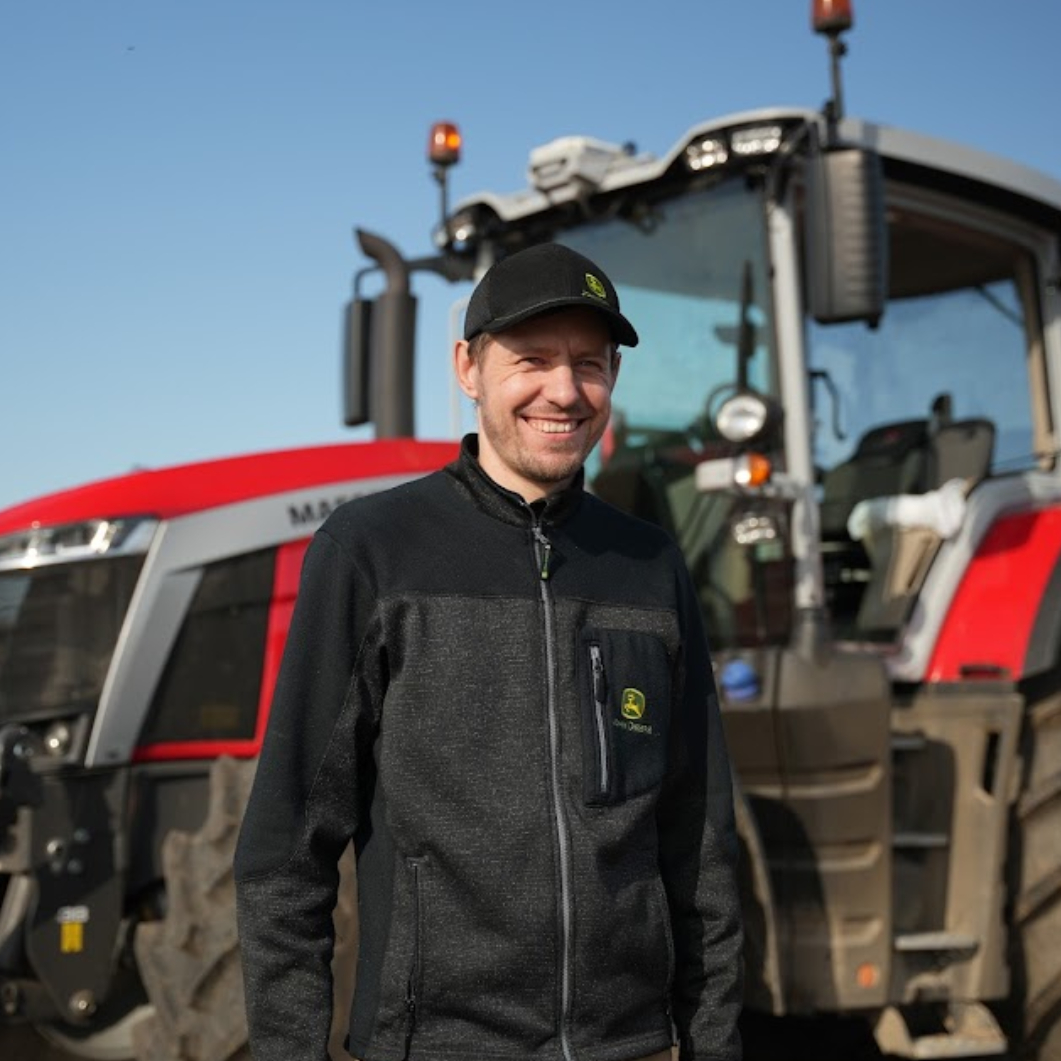
Carbon farming on David's farm
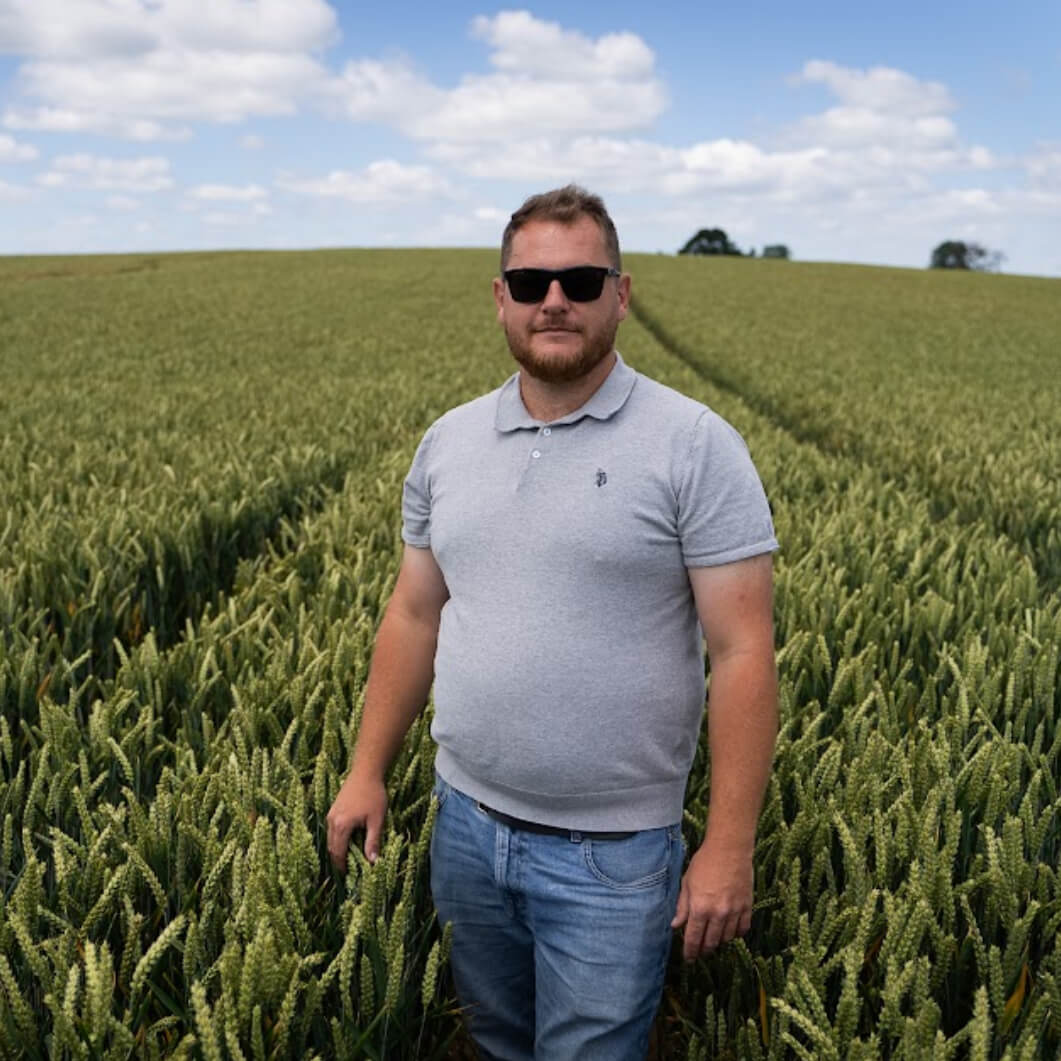
Carbon farming on Piotr’s farm
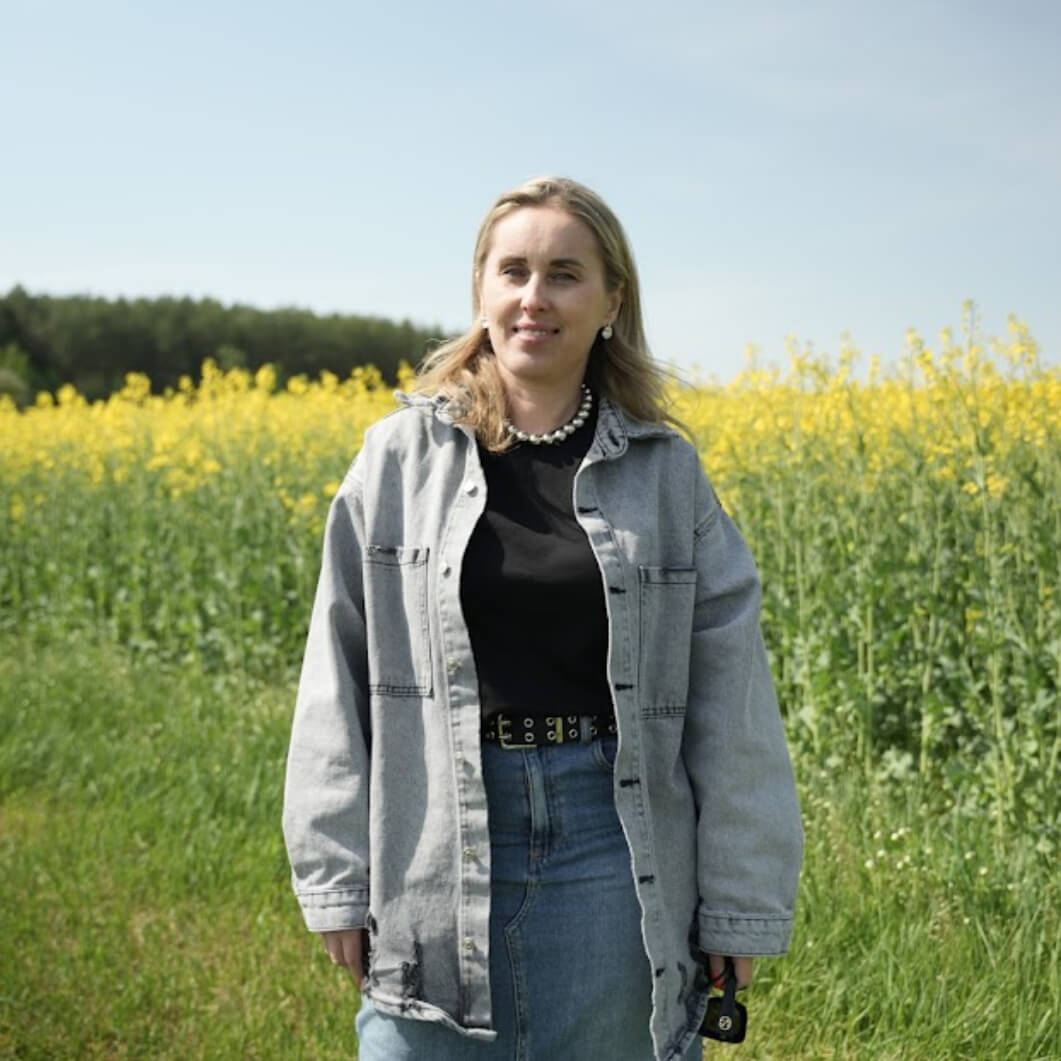
Carbon Farming on Jolanta’s farm
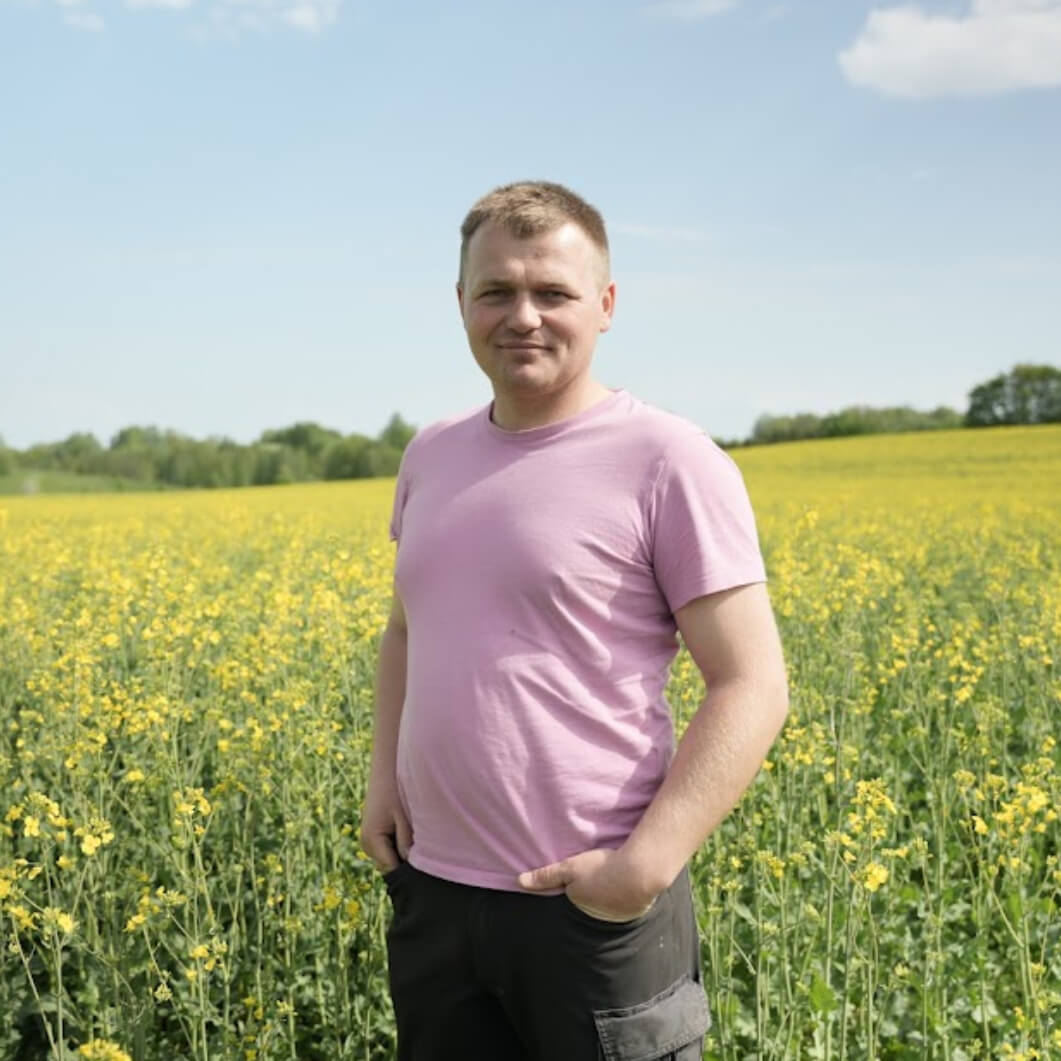
Carbon farming on Donatas farm
Learn more about
HeavyFinance’s carbon farming programs
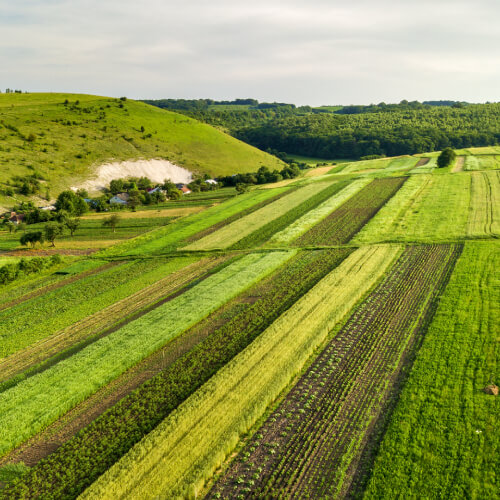
The Carbon Farming Program of Lithuania
With more than 130 thousand agricultural holdings in Lithuania, the country has deep traditions in growing wheat, barley and rye. The agricultural sector carries out important economic, social, environmental and ethno-cultural functions.
The implementation of the Program has allowed a universal adoption of regenerative practices among participants with >100% of farmers practising reduced tillage and crop rotations practices, 70%+ of them integrating cover crops and 30% of them reducing synthetic fertiliser by 20%+.
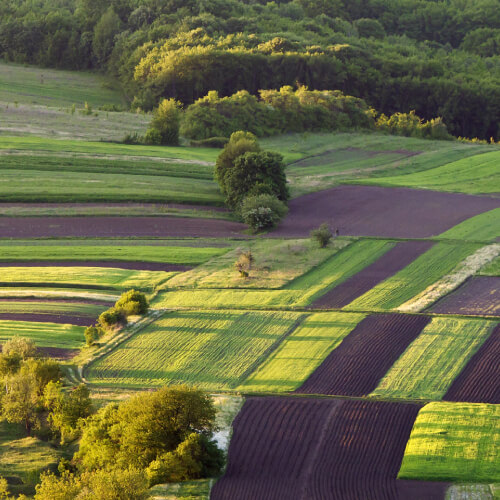
The Carbon Farming Program of Poland
With over 1 million farmers and half of its territory consisting of arable lands, Poland ranks among the world’s largest producers of crops such as wheat, oats, rye, barley, rapeseed, corn, and potatoes. However, in recent years, the country has experienced extreme weather events exacerbated by climate change, resulting in the loss of up to 50% of crop production in certain regions.
The implementation of the Program has allowed a universal adoption of regenerative practices among participants with 100% of farmers practising reduced tillage and crop rotations practices, 70% of them integrating cover crops and 50% of them reducing synthetic fertiliser.
Want to learn more?
Incorporate soil carbon removals into your climate goals allowing you to offset hard-to-abate emissions while supporting the transition to regenerative agriculture.



